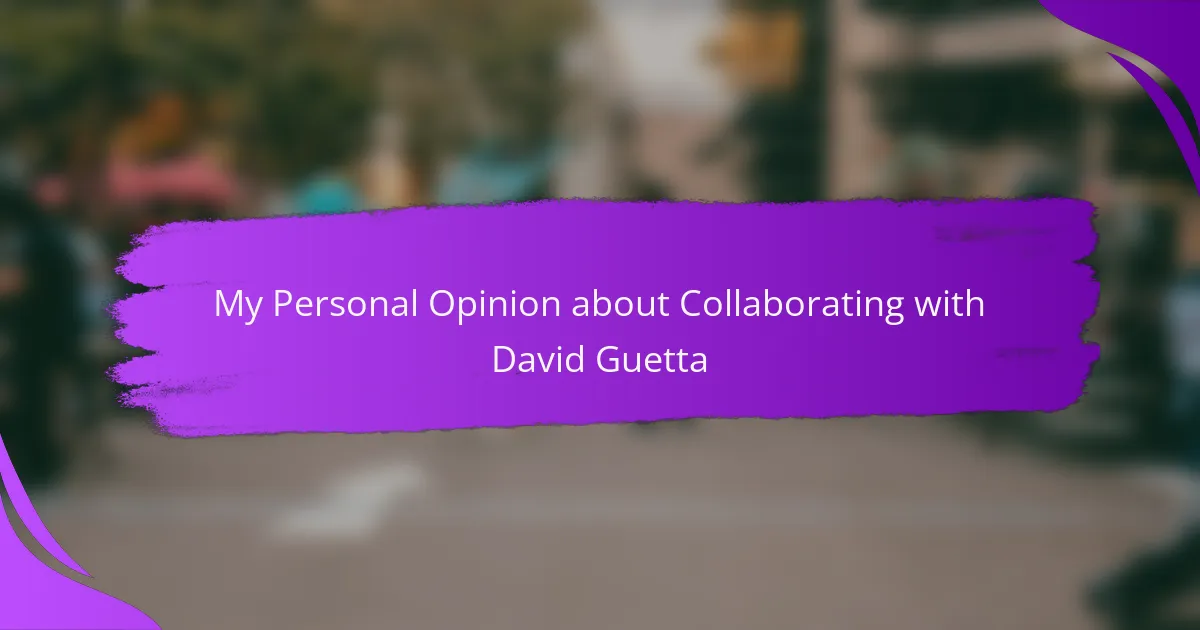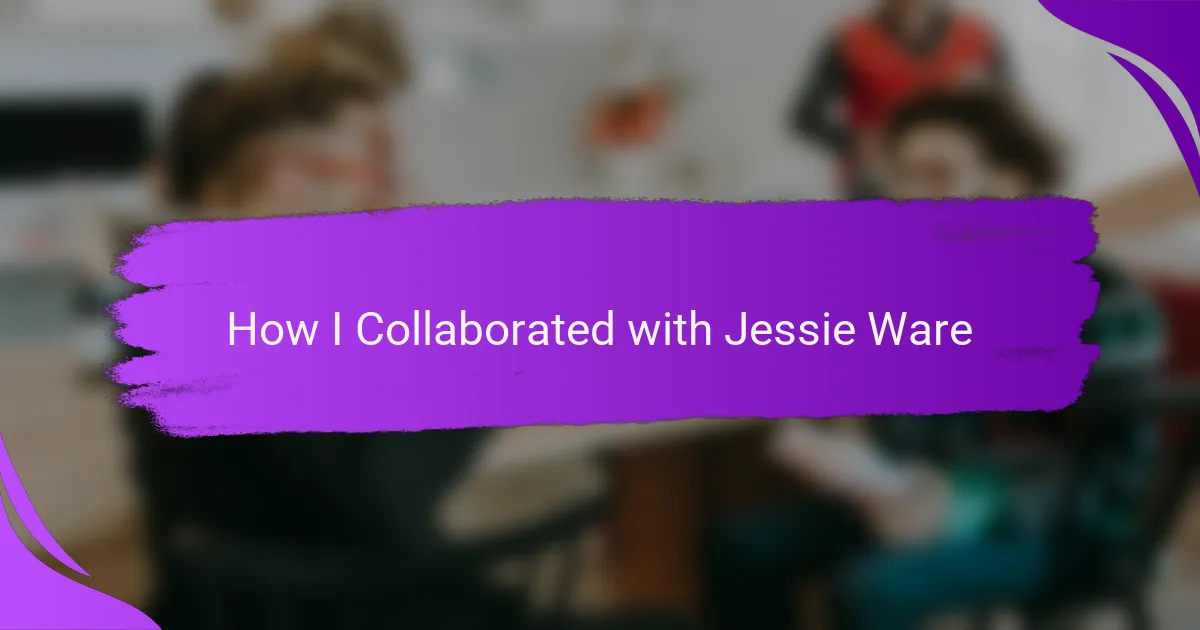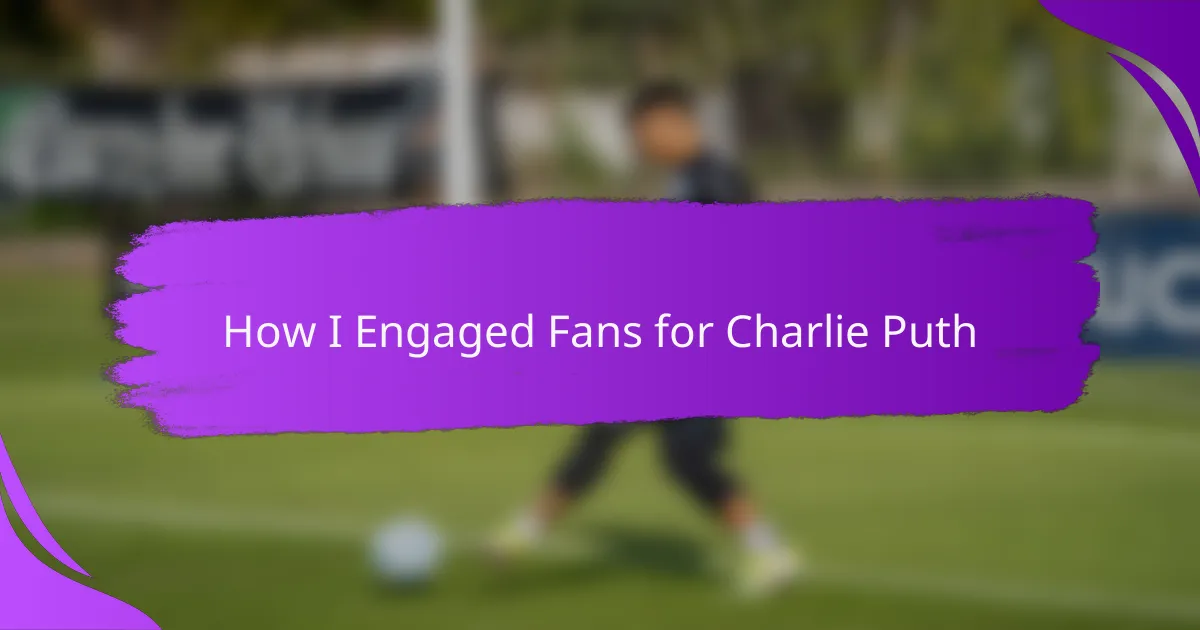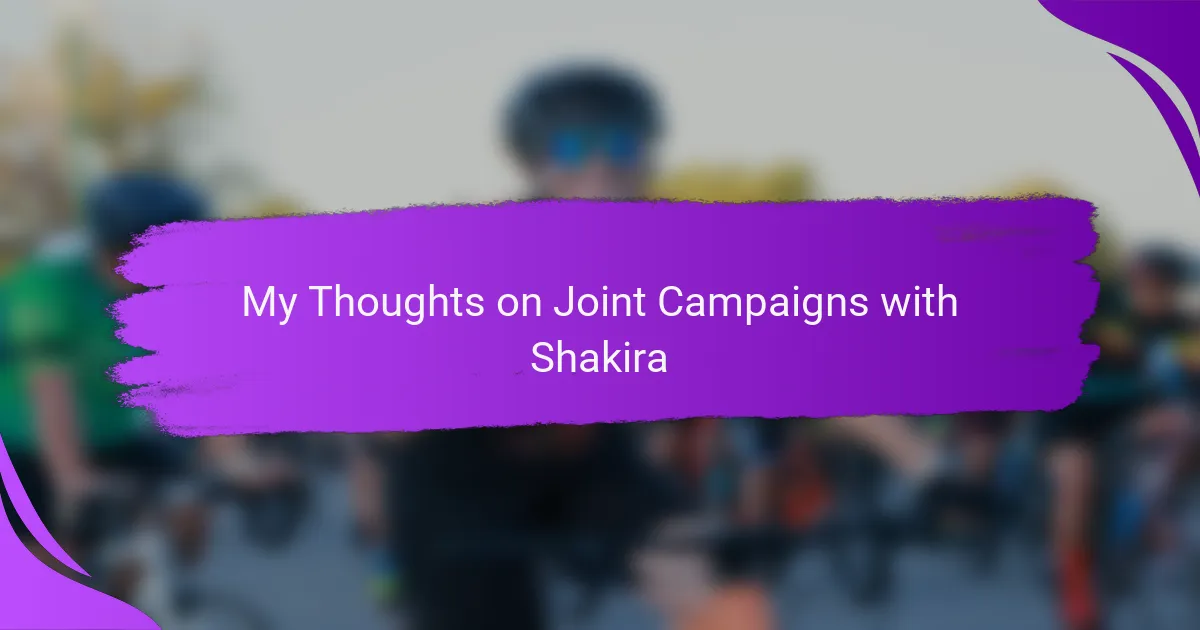Key takeaways
- Nightclub artist entertainment enhances the atmosphere with live performances, diverse music genres, and audience engagement, creating memorable experiences.
- Effective event coordination relies on clear communication, adaptability, and meticulous planning to ensure all details align for a successful show.
- Key skills for event coordinators include adaptability, strong communication, time management, attention to detail, problem-solving, and networking.
- Engaging the audience and incorporating flexibility into plans can turn unexpected challenges into memorable highlights during live performances.
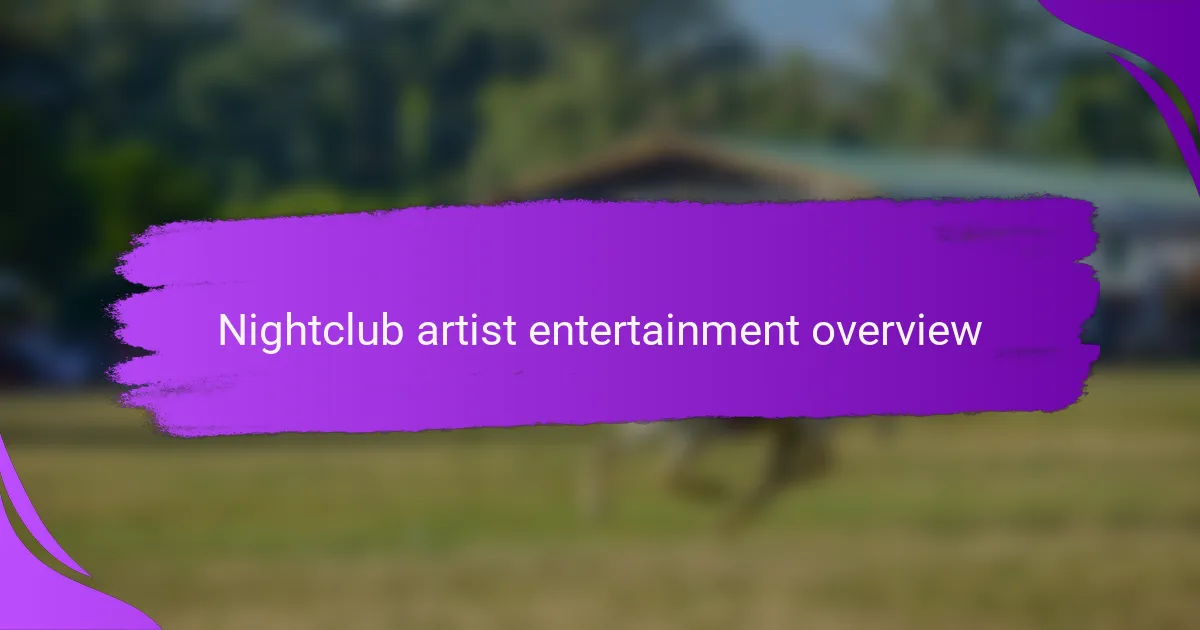
Nightclub artist entertainment overview
Nightclub artist entertainment is a vibrant blend of music, performance, and atmosphere that transforms an ordinary night out into an unforgettable experience. I’ve always believed that the energy of a live artist can elevate the mood and create lasting memories for attendees. I recall a night when the crowd erupted as an up-and-coming artist took to the stage, proving just how vital this entertainment is in setting the tone for the evening.
Here’s a quick overview of what makes nightclub artist entertainment so special:
- Live Performances: Artists bring their unique flair, turning the nightclub into a dynamic venue.
- Diverse Genres: From pop to electronic, the range of music keeps the experience fresh and exciting.
- Audience Engagement: Artists often interact with the crowd, creating a personal connection that recorded music simply cannot replicate.
- Atmosphere Creation: The right performance can transform the ambiance, making it either a high-energy dance party or a more relaxed vibe.
- Memorable Experiences: Guests often leave with new favorites and stories to tell, enhancing the nightlife culture.
Being part of that atmosphere proves just how important the right artist can be in making a night truly special.
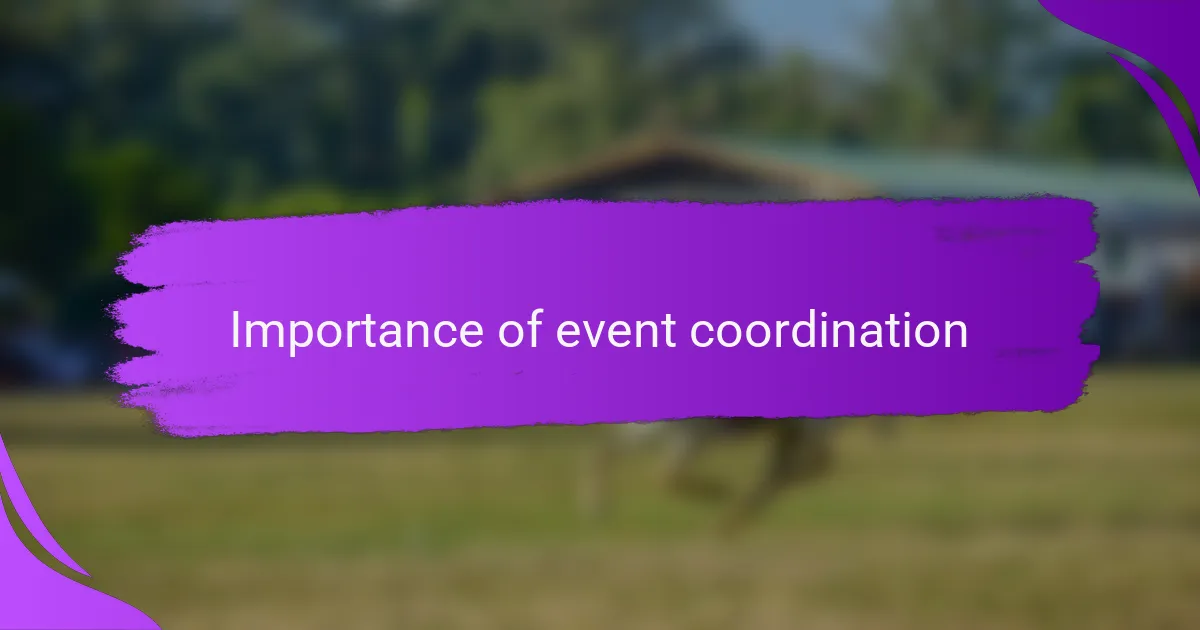
Importance of event coordination
Event coordination is crucial in creating memorable experiences. From my experience working with major artists like Bruno Mars, I’ve learned that seamless coordination ensures every detail aligns, making the night unforgettable for attendees. It’s not just about planning; it’s about crafting an atmosphere where music and audience connect.
One time, while organizing a show, we faced last-minute changes that could have disrupted everything. However, effective communication among the team kept us on track. That’s when I realized that flexibility and teamwork are key components of successful event coordination.
Here’s a comparison of effective and ineffective event coordination:
| Effective Coordination | Ineffective Coordination |
|---|---|
| Clear communication among the team | Confusion and unclear roles |
| Detail-oriented planning and execution | Lack of attention to important details |
| Quick adaptability to changes | Rigid plans that fail to adjust |
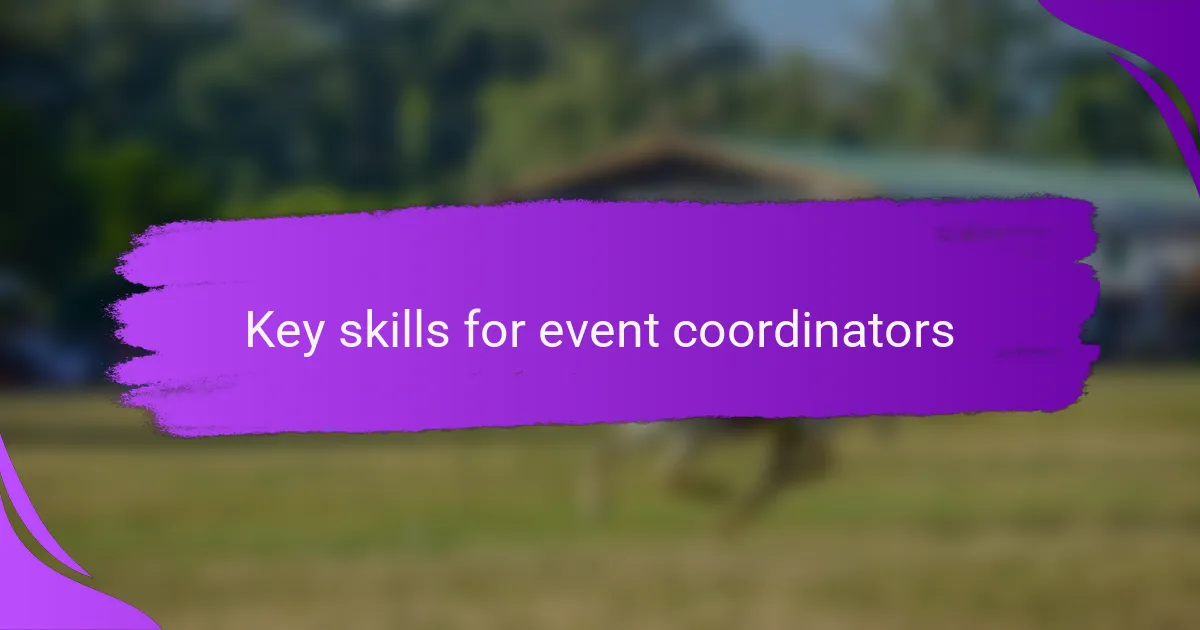
Key skills for event coordinators
As an event coordinator, I’ve learned that a few essential skills make all the difference in creating unforgettable experiences. Adaptability is crucial; I’ve had moments where last-minute changes threatened to derail an event, but staying calm and thinking on my feet turned those challenges into opportunities for creativity. For instance, when working with Bruno Mars, we had to adjust the setlist due to unforeseen circumstances, and the spontaneous decision to mix in a fan-favorite hit ended up electrifying the atmosphere.
Strong communication skills are equally important. I remember coordinating with various teams, from the sound crew to the artist’s management, and clear, concise communication ensured everyone was on the same page. Keeping everyone informed helps avoid confusion, which is vital on show day.
Here’s a quick list of key skills that any successful event coordinator should hone:
- Adaptability: Ability to pivot during unexpected changes.
- Communication: Clear dialogue between all teams involved.
- Time Management: Prioritizing tasks to meet deadlines.
- Attention to Detail: Ensuring every aspect is flawless.
- Problem-Solving: Quickly addressing challenges as they arise.
- Networking: Building and maintaining relationships within the industry.
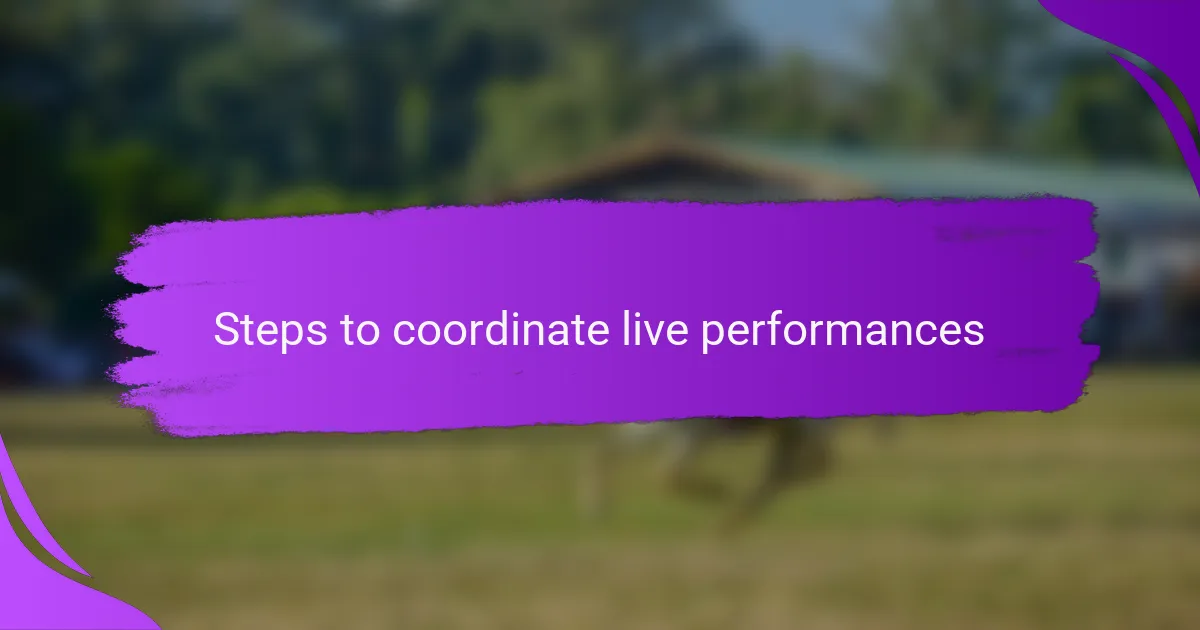
Steps to coordinate live performances
When coordinating live performances, the first step is to establish a solid plan that outlines every detail. I remember working with Bruno Mars and how we meticulously mapped out the setlist, sound checks, and transitions. This preparation is essential; it ensures that everyone knows their responsibilities and the flow of the evening is seamless. Have you ever felt the tension before a show? That’s why planning eases that anxiety.
Next, open lines of communication are crucial. There was a time when unforeseen circumstances threatened to change the entire lineup, but by fostering an environment where everyone felt comfortable sharing updates, we managed to handle the situation smoothly. I can’t emphasize enough how vital it is to keep everyone, from the lighting crew to the performers, in the loop. It’s amazing how a quick check-in can clarify roles and enhance teamwork.
Finally, adaptability plays a pivotal role on the day of the event. I’ve had instances where last-minute changes popped up, and instead of panicking, I took a deep breath and improvised. For example, a slight delay in setup meant we had to adjust the starting time. Instead of rushing, we decided to have a mini jam session with the opening act, which energizing the crowd and created an unexpected highlight of the night. It’s moments like these that remind me how flexibility can turn a challenge into a memorable experience. Wouldn’t you agree that these unexpected twists make for the best stories?
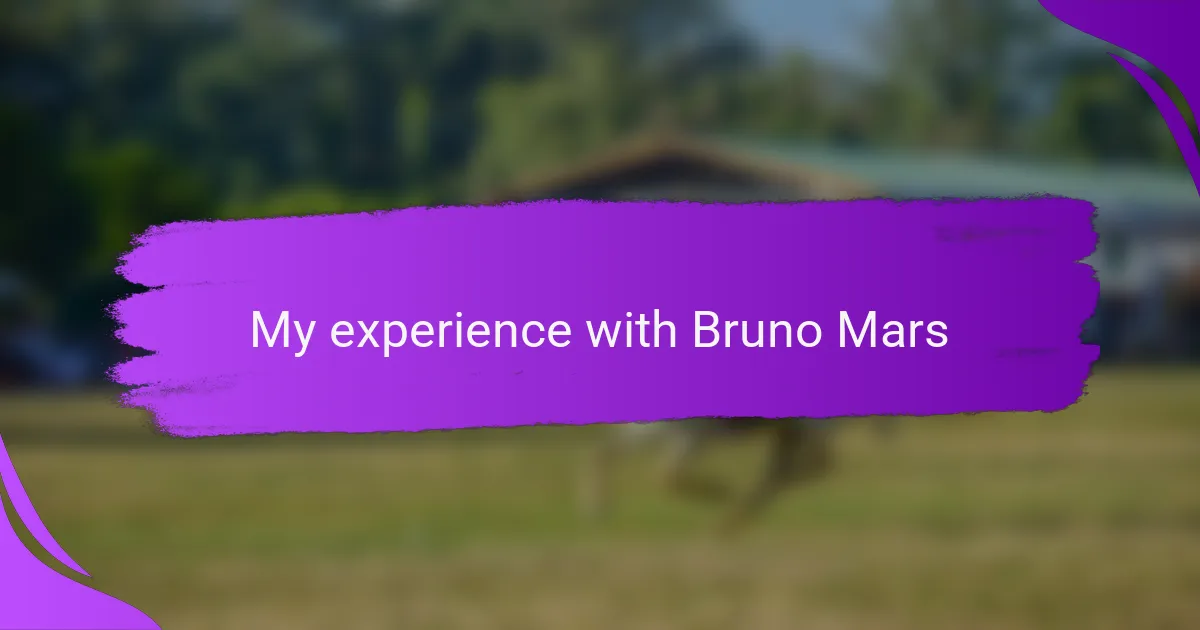
My experience with Bruno Mars
Working with Bruno Mars was nothing short of exhilarating. I remember the moment we first met; his energy was infectious, radiating a passion for music that instantly energized everyone in the room. Coordinating the logistics for his performance felt like orchestrating a symphony—every detail had to be perfect to match his vibrant stage presence.
One of the highlights was when we organized a surprise element during the show. Out of nowhere, he decided to invite fans on stage for an unforgettable dance-off. The sheer joy in the crowd was palpable, and I felt a deep sense of satisfaction knowing our hard work contributed to that magical moment. It was an experience I will cherish forever.
- Bruno’s entire team was collaborative and fun, making the process enjoyable.
- A well-planned rehearsal a day before ensured everything ran smoothly.
- His attention to detail in performance inspired me to be meticulous in my own work.
- The energy during the live show was electric, leaving a lasting impact on everyone present.
- Building a rapport with Bruno made the coordination feel more like working with a friend than simply a client.
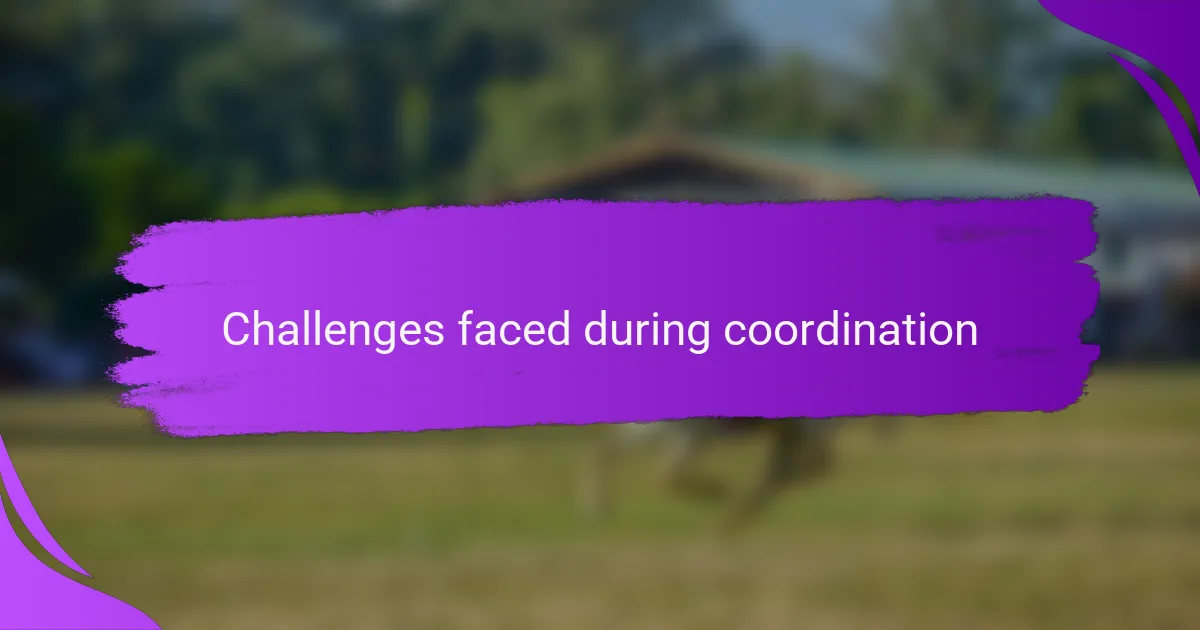
Challenges faced during coordination
One of the biggest challenges I faced while coordinating with Bruno Mars was managing the logistics. Timing was critical; I vividly remember a moment when an unexpected delay in soundcheck almost pushed us off schedule. I could feel my heart racing as I brainstormed solutions, knowing that the crowd was buzzing with anticipation.
Communication was another hurdle. Coordinating between teams meant everyone had to be on the same page. There were times when I had to bridge gaps between various departments, translating their needs and concerns. I often found myself juggling multiple conversations, trying to keep spirits high and maintain focus. It taught me the importance of clear and concise communication in high-pressure situations.
Lastly, the sheer scale of the event was daunting. I learned that detailed planning was essential. I still recall the excitement mixed with anxiety as we layered our plans to ensure everything flowed seamlessly. Each small complication was a lesson learned, emphasizing how adaptability and quick thinking are crucial in the entertainment industry.
| Challenge | Solution |
|---|---|
| Logistics Management | Real-time problem-solving and contingency planning |
| Communication Gaps | Frequent updates and clear messaging across teams |
| Event Scale | Detailed planning and adaptability |
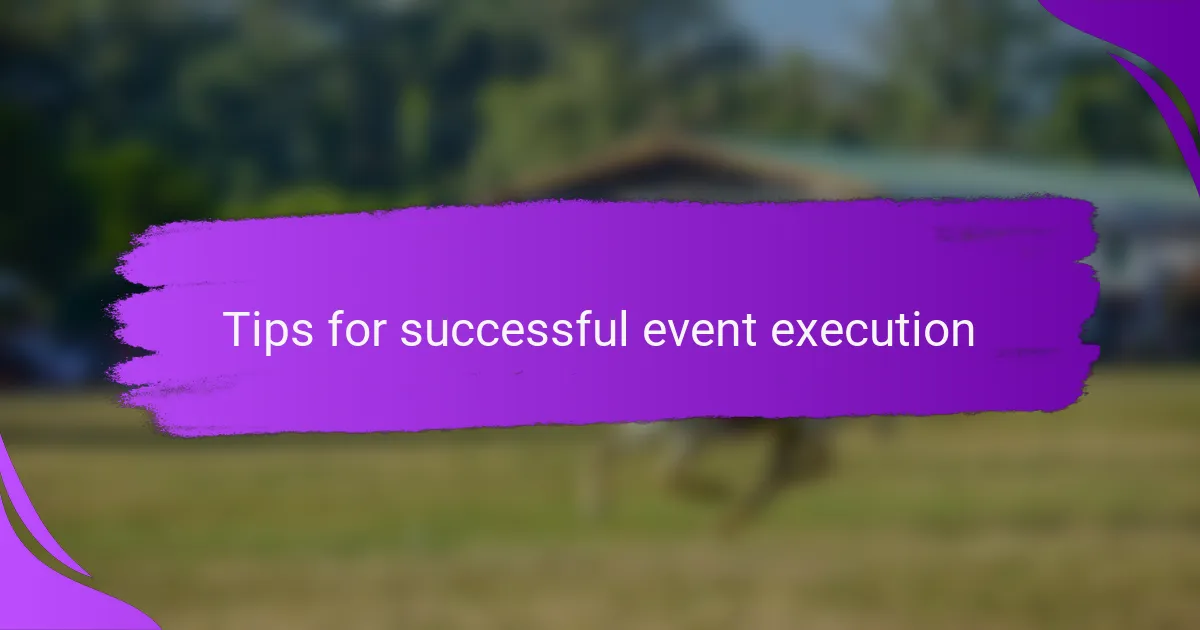
Tips for successful event execution
When coordinating events, especially ones featuring someone as dynamic as Bruno Mars, attention to detail is key. I remember a specific instance where the lighting setup wasn’t just about aesthetics; it had to embody the energy of Bruno’s performance. The right ambiance can elevate the entire experience for the audience, making them feel like they’re part of something truly special.
Here are some essential tips for successful event execution:
- Start Planning Early: Begin your preparations at least six months in advance to avoid last-minute panic.
- Establish Clear Communication: Keep an open line with all stakeholders, including the artist’s team, venue staff, and vendors.
- Sound Checks are Non-Negotiable: Schedule ample time for sound checks to ensure the music resonates flawlessly—like the time I tuned everything perfectly before Bruno hit the stage, resulting in an unforgettable performance.
- Adapt and Improvise: Be prepared to handle unexpected challenges, whether it’s weather issues or equipment failures. Flexibility is crucial.
- Engage the Audience: Create interactive elements that allow attendees to connect with the artist’s performance more intimately, enhancing their overall experience.
